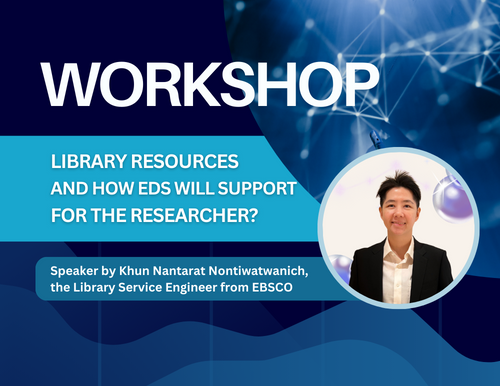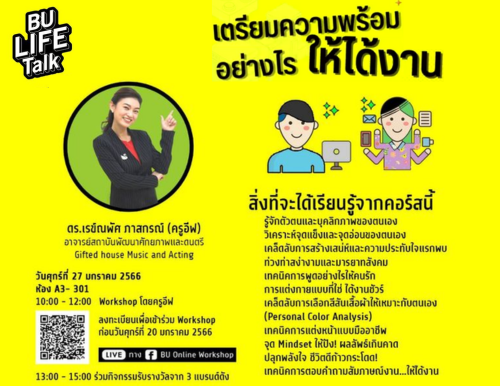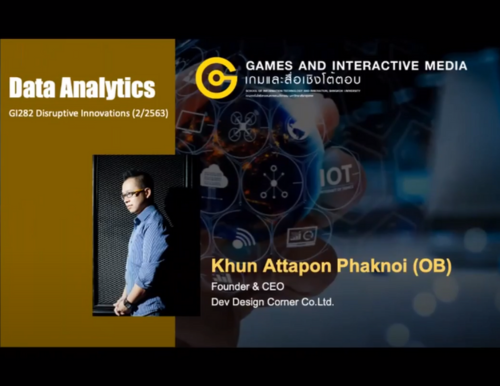The EBSCO database involves searching and accessing high-quality academic articles and research. The steps include targeted searching, reading, downloading, and saving desired articles in the system. Filters and advanced search functions help narrow down results to better match specific needs.
การที่คนสองคนเชื่อมโยงกันทางด้านอารมร์และทางกาย ซึ่งเป็นการผสมผสานที่มีระดับแตกต่างกันออกไปตามรูปแบบและระดับความสัมพันธ์ การสื่อถึงรูปแบบความสัมพันธ์ต่าง ๆ โดย อ.พัชราพร ดีวงษ์
การพัฒนาทักษะทางความคิด กับความท้าทายของเด็กรุ่นใหม่ การเปิดใจที่จะรับฟังสิ่งรอบตัวให้มีความสุข การยอมรับในความเป็นจริงของชีวิต และการเปลี่ยนแปลงตัวเองเพื่อรับสิ่งใหม่ ๆ ที่กำลังจะเกิดขึ้น โดย คุณภริษา ยาคอปเซ่น
การบรรยายเกี่ยวกับการใช้ข้อมูลความต้องการของลูกค้า (Customer Insight) นำมาพัฒนาเป็นผลิตภัณฑ์และบริการใหม่ของพฤกษา เพื่อตอบสนองไลฟ์สไตล์ยุคใหม่และเทรนด์ความใส่ใจด้านสุขภาพและการใช้ชีวิตในยุคโควิด โดย Kamolsri Autsawaphakorn
Lao economy, Lao job market & labor law, AEC and labor mobility, demand for talents, get yourself ready and about 108JOB By Keovisouk Dalasane
Lao economy, Lao job market & labor law, AEC and labor mobility, demand for talents, get yourself ready and about 108JOB By Keovisouk Dalasane
Lao economy, Lao job market & labor law, AEC and labor mobility, demand for talents, get yourself ready and about 108JOB By Keovisouk Dalasane
This workshop covers advanced searching and the more sophisticated of databases in the EBSCOhost platform. Library Resources, What is EDS and how it works?, Techniques in “Feature & Setting”, How EDS support the researcher. By Nantarat Nontiwatwanich on January 20, 2024
เรียนรู้จักตัวตนและบุคลิกภาพของตนเอง วิเคราะห์จุดแข็งและจุดอ่อนของตนเอง เคล็ดลับการสร้างเสน่ห์และความประทับใจแรกพบ ท่วงท่าสง่างามและมารยาทสังคม เทคนิคการพูดอย่างไรให้คนรัก เคล็ดลับการเลือกสีสันเสื้อผ้าให้เหมาะสมกับตนเอง เทคนิคการแต่งหน้าแบบมืออาชีพ และเทคนิคการตอบคำถามสัมภาษณ์งาน
การบรรยายแบบออนไลน์ เรื่อง Data Analytics Trends
โดย Khun Attapon Paknoi, Entrepreneurship and Innovation, Specialist and Researcher, University of London
เมื่อวันที่ 3 มีนาคม 2564
เป็นส่วนหนึ่งของวิชา GI282 Disruptive Innovation ปีการศึกษา 2563







